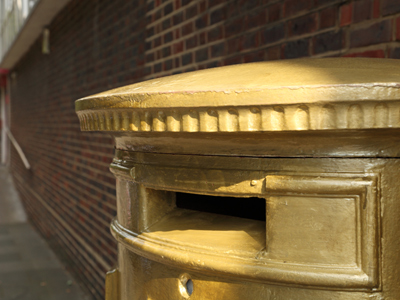
Out and About - Direction Words and Terms
Quiz playing is a wonderful way to increase your knowledge of English as a Second Language. Remember that all of our ESL quizzes have titles that are both friendly and serious at the same time… In the case of this quiz you might like to tell your friends about “Out and About” but no doubt your teachers will talk about the “Direction Words and Terms quiz”! If you hear a specific term and you want to find a quiz about the subject then just look through the list of quiz titles until you find what you need.
When you arrive in Britain, you will not 'know your way around'. You will need to learn some direction words and terms to discover places through maps and talking to people. This Quiz helps you to practise the language and terms you will need for this when you are 'out and about'.
'The ... ... has been painted ... ... instead of red, in honour of a 2012 Olympic champion who lived in our town.'
'Go ... ... the bridge and you will see ... ... cathedral nearby on the other side.'
We can go 'over' or 'across' (the top of) a bridge, or 'under' it (or possibly 'underneath', particularly if we then stay there to visit a shop or something inside the archway), or maybe 'through' it. No other preposition would make good sense here.
There is a small food store just ... ... the ... ... .
'When you reach the station, walk ... ... the stairs and you will see the ticket office ... ... you.'
If the ticket-window were 'behind you' (Answer 1) it would be hard for you to see; '(straight) ahead of you' is possible (Answer 2), but 'across' made no sense.
So Answer 4 is the only one that fits sensibly in both places.
'If the weather is fine, you might like to walk ... ... the churchyard and ... ... the canal.'
Answer 4 is obviously silly.
You could go 'across' the churchyard, but 'through' carries a stronger suggestion that you might find it interesting to look around you while you are there (e.g. observing the styles and ages of some of the graves: the names, dates and stories ~ as a matter of human and cultural interest ~ instead of going quickly past).
' ... ... the third street on your left, and the post office is ... ... the supermarket.'
You can't 'turn a street' (Answer 4) in English, but you can 'turn into a street'.
If two buildings are facing each other with a road in between them, we say they are 'opposite' each other. 'Against' would suggest that there is nothing else in between them. ('He sat against the wall.') ... in which case, how could anyone squeeze in between to get there?
'Go down the road, and the cinema is ... '
'The ... ... is just ... ... the next corner ~ I can smell it already!'
British people sometimes say 'just round the corner' when a place is in fact a bit further away than the next street: their favourite pub, or the place where they meet their friends for worship (church / synagogue / mosque / temple etc.), which might be about a kilometre away and take ten minutes or more to reach on foot. We also say '(just) down the road' ~ as in 'We still get Christmas cards from that couple who used to live down the road' ~ even if they were not quite in the actual same street. They might have been 'down the main road', in another town or village perhaps.
' ... ... past the ... ... lights outside the sports centre.'
In Britain we tend to speak of 'traffic lights', or even just 'lights'; we don't usually call them 'red' or any other colour (even though they do seem to be at red, more often than not, when we come to them!).
' ... ... this road ... ... you come to the railway station.'
'Unless' would mean that if we did come to the station, we would be on the wrong road anyway and have to change onto another one. That doesn't really sound right!
Ready for more?
not all...
quizzers. Try to win a coveted spot on our Hall of Fame Page.







